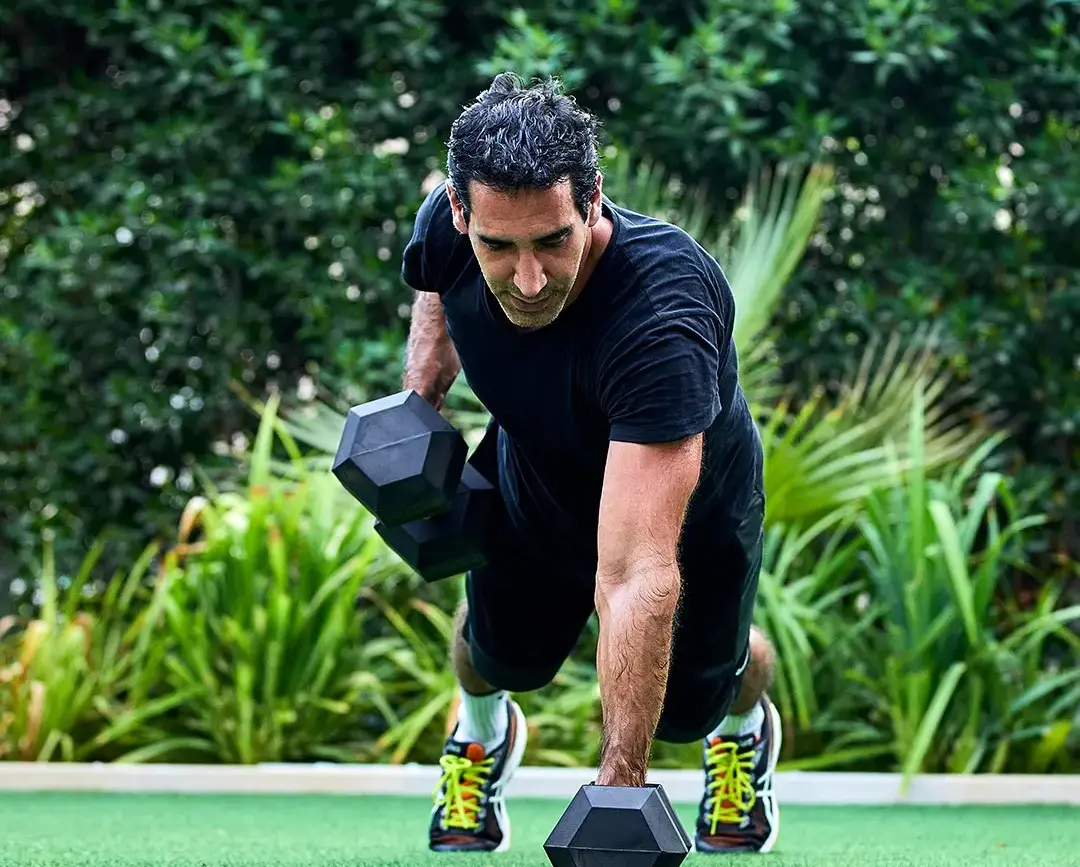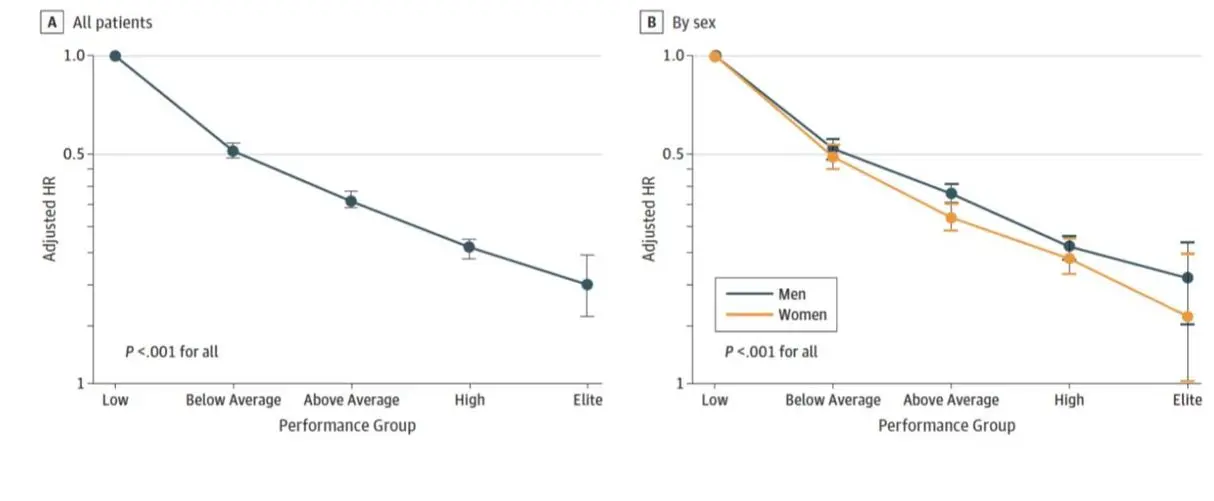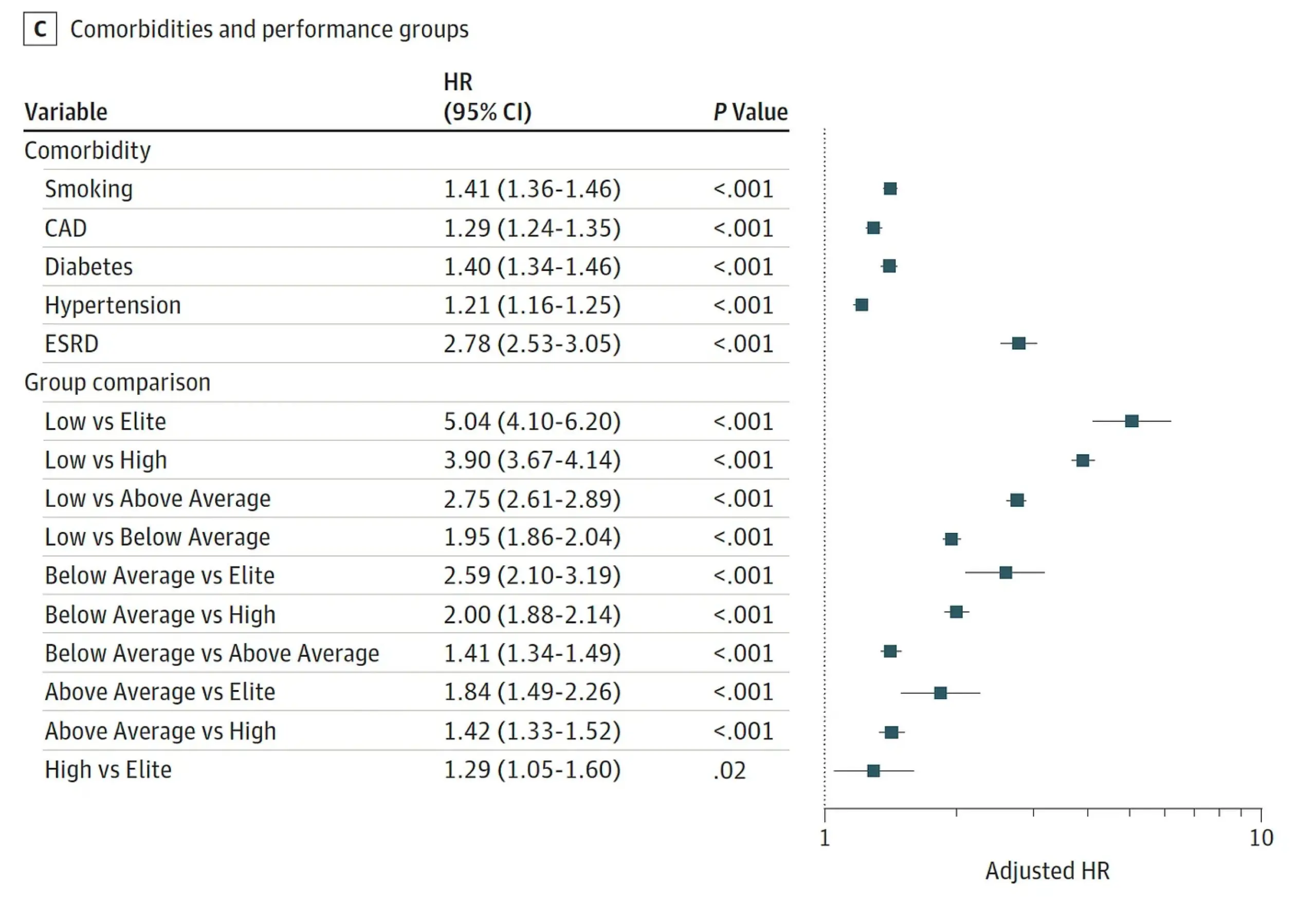DNA Health & Wellness
Longevity Monthly
March issue
Exercise: the best predictor of longevity ?

You would be hard pushed to argue against the health protective effects of exercise and most people would comfortably support the statement ‘exercise extends longevity’ with equal voracity….but how does it exhert this longevity effect and through what mechanism?
Whilst exercise is not a complete vaccine, the overall protective effects are quite large, in terms of what it does on a multi-system level – cardiometabolic and neurodegenerative risk – and also its influence on the nine cellular hallmarks of ageing.

The epidemiology is as impressive as it is overwhelming. Particularly when you look at a field like nutrition and compare the hazard- ratios – the change in rate of death per unit time for a particular intervention.
When it comes to nutrition, the hazard ratios are so small – in the order of a few % points – and also so inconsistent that it becomes almost impossible to assign a mortality benefit to almost anything you can eat.
In contrast, a 2018 paper in JAMA demonstrates a compelling and clear association between high VO2 max and longevity, and conversely, an association between low VO2 max and mortality

The figure above shows hazard ratios (HRs) for all-cause mortality of varying fitness compared to low performers. In this study people are grouped by fitness:
– Inactive (bottom 25th %)
– 25 – 50%
– 50 – 75%
– 75 – 97.5%
– The elite fitness group (top 2.5%)
Not only is the overall trend of effect directionally lower for all-cause mortality for increased fitness, the risk reduction at all levels is just as impressive. Going up one level from the lowest quartile (least fittest) to below average de-risks death by 50% (HR 2.0), and going all the way up to elite level reduces your risk of death by just over 5x (HR 5.09) over a 10-year period.

Hazard Ratios(HR): Comparing V02 max to co-morbidities
Let us turn our focus to how exercise stacks up against other variables such as smoking, diabetes, hypertension etc. If we rank ordered in terms of how well do they predict the probability you’re going to die this year…Coronary artery disease, 29% (increased risk), Smoking 41%, Diabetes, 40%, High blood pressure, 21%…..the very top of that list is VO2 max (low-to-elite fitness), 504%
‘VO2 max is arguably the single greatest predictor of lifespan outside of genetics’
For me, the strongest takeaways here are two-fold. If you are inactive and just trying to improve your health, move more– just doing something like brisk walking has substantial health benefits, even more so than stopping smoking and controlling blood pressure. And finally, for those who are recreationally active, keeping increasing the intensity reaps larger longevity benefits beyond any other incremental changes in your lifestyle regimen.
